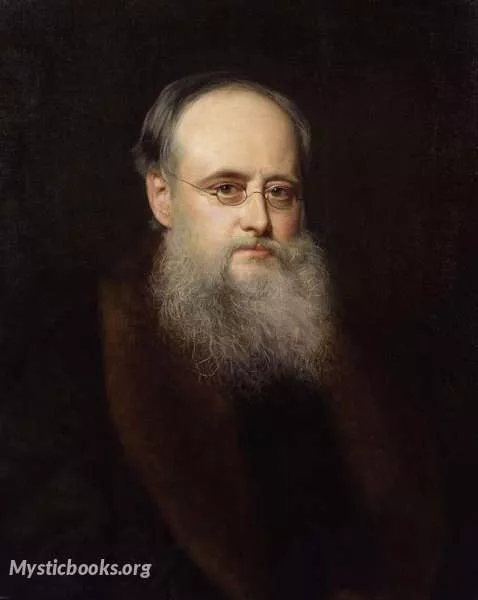
Timeline
Title
Country/Nationality
Wilkie Collins
William Wilkie Collins was an English novelist and playwright known for The Woman in White (1859), and for The Moonstone (1868), which has been called the first modern English detective novel. Born to the London painter William Collins and his wife, the family moved to Italy when Collins was twelve, living there and in France for two years, which allowed the author to learn Italian and French. He worked initially as a tea merchant. After publishing Antonina, his first novel, in 1850, Collins met Charles Dickens, who became a friend and mentor. Some Collins works first appeared in Dickens's journals Household Words and All the Year Round. The two also collaborated on drama and fiction. Collins gained financial stability and an international following by the 1860s, but began to suffer from gout. He took opium for the pain, but became addicted to it. His health and his writing quality then declined in the 1870s and 1880s. Collins was critical of the institution of marriage: he split his time between widow Caroline Graves – living with her for most of his adult life, treating her daughter as his – and the younger Martha Rudd, by whom he had three children.
Collins was born at 11 New Cavendish Street, Marylebone, London, the son of William Collins, a well-known Royal Academician landscape painter, and his wife, Harriet Geddes. Named after his father, he was soon known by his middle name, which honoured his godfather, David Wilkie. The family moved to Pond Street, Hampstead, in 1826. In 1828 Collins's brother Charles Allston Collins was born. Between 1829 and 1830, the Collins family moved twice, first to Hampstead Square and then to Porchester Terrace, Bayswater. Wilkie and Charles received their early education from their mother at home. The Collins family were deeply religious, and Collins's mother enforced strict church attendance on her sons, which Wilkie disliked.
An instrumental event in his career was an introduction in March 1851 to Charles Dickens by a mutual friend, through the painter Augustus Egg. They became lifelong friends and collaborators. In May of that year, Collins acted with Dickens in Edward Bulwer-Lytton's play Not So Bad As We Seem. Among the audience were Queen Victoria and Prince Albert. Collins's story "A Terribly Strange Bed," his first contribution to Dickens's journal Household Words, was published in April 1852. In May 1852 he went on tour with Dickens's company of amateur actors, again performing Not So Bad As We Seem, but with a more substantial role.
Collins died at 82 Wimpole Street, following a paralytic stroke. He is buried in Kensal Green Cemetery, West London. His headstone describes him as the author of The Woman in White. Caroline Graves died in 1895 and was buried with Collins. Martha Rudd died in 1919.
Books by Wilkie Collins
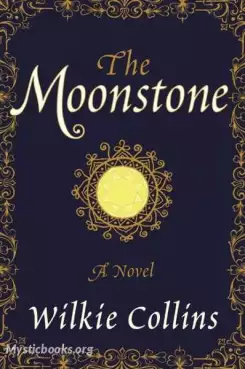
The Moonstone
A young woman who inherits a beautiful diamond known as The Moonstone on her eighteenth birthday becomes the center of this mystery story. The diamond is a gift from an uncle who once served as an army officer in British India. She proudly wears the...
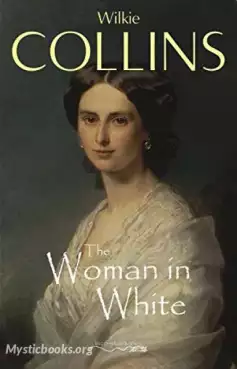
The Woman in White
The Woman in White is Wilkie Collins's fifth published novel, written in 1859. It is considered to be among the first mystery novels and is widely regarded as one of the first (and finest) in the genre of "sensation novels". The story is sometimes c...

Miss or Mrs.?
Natalie Graybrooke is in love with her cousin Launcelot Linzie, but engaged to Mr. Turlington, an older man who covets her fortune and whom she detests. Turlington is the executor of Natalie's father's estate. When Natalie secretly marries her cousin...

Basil
Basil (1852) is the second novel written by British author Wilkie Collins, after Antonina.
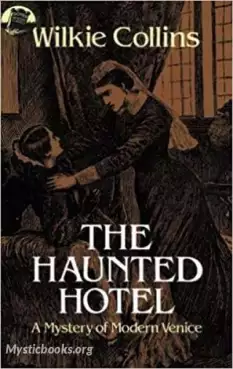
The Haunted Hotel, A Mystery of Modern Venice
A kind, good-hearted, genteel young woman jilted, a suspicious death or two that only a few think could be murder, strange apparitions appearing in an hotel all combine to create a horrifying conundrum. Who was the culprit and will finding out finall...
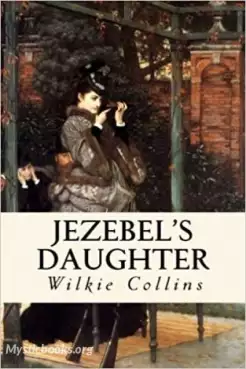
Jezebel's Daughter
A brilliant chemist and a shrewd businessman — die on the same day. The widow of the chemist, Mrs. Fontaine, is left with the poisons he was researching , while Mrs. Wagner is left with her husband's mental health institution reforms and his plans fo...

The Frozen Deep
The Frozen Deep is an 1856 play, originally staged as an amateur theatrical, written by Wilkie Collins under the substantial guidance of Charles Dickens. Dickens's hand was so prominent—beside acting in the play for several performances, he added a p...
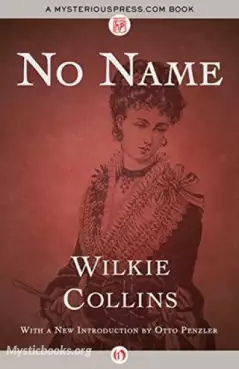
No Name
When Andrew Vanstone is killed suddenly in an accident and his wife follows shortly thereafter, it is revealed that they were not married at the time of their daughters' births, making their daughters "Nobody's Children" in the eyes of English law an...
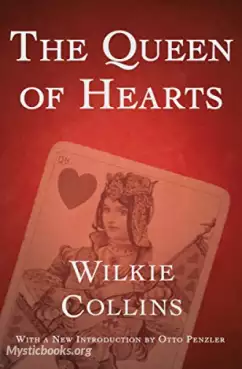
The Queen of Hearts
A remote castle in Wales inhabited by three older men is the last place on earth that a young, lively girl of 18 would want to spend time. And yet, when forced by circumstances to take up residence there for six weeks prior to coming of age, Jessie s...
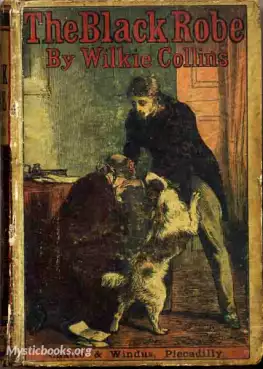
The Black Robe
As the story begins, Romayne and his friend, Major Hynd, are in Boulogne to visit Romayne's aunt, who is dying. While there, Romayne attends a card game, where he has an argument with a corrupt card sharp, the General, who challenges him to a duel. H...
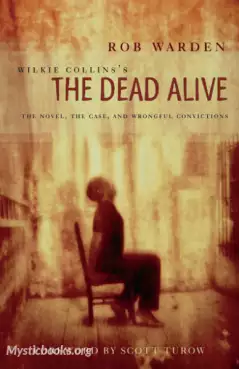
The Dead Alive
The Dead Alive written by Wilkie Collins in the 1870s is on the real-life wrongful conviction of Stephen and Jesse Boorn that happened in 1819 in the United States, in the state of Vermont. It shines a light on the failures of the legal system when i...
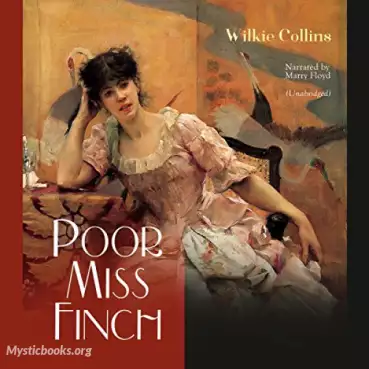
Poor Miss Finch
Poor Miss Finch is a novel about a young blind woman who temporarily regains her sight while finding herself in a romantic triangle with two brothers.
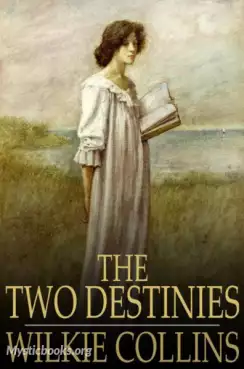
The Two Destinies
Mary Dermody is destined to be together with George Germaine one day, or so at least her grandmother prophesies. Destiny at first doesn't seem to adhere to this plan, and the pair is separated and lose sight of each other. But when George saves a you...
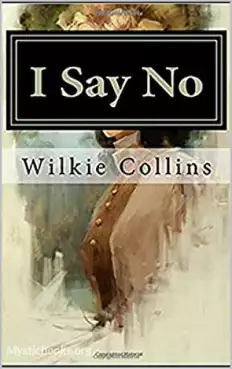
I Say No
Emily Brown is an orphan girl that almost no one can help but love when they meet her. She is pursued by two worthy men: Mr. Alban Morris, the drawing master at her school; and Rev. Miles Mirabel, a clergyman. However, one of them is lying to her aft...
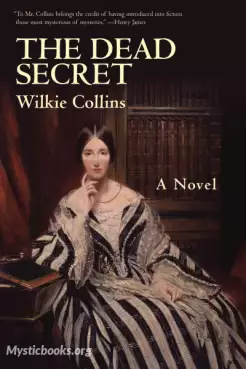
The Dead Secret
"Everything in life has a price. May be, telling a Secret has the highest. However, not telling may be worse. What will Sarah choose? will she tell the Secret which destroyed her life?"
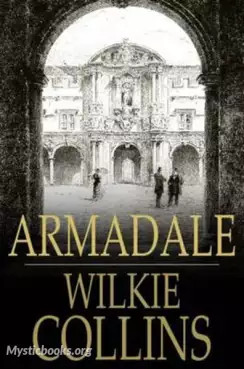
Armadale
The novel has a convoluted plot about two distant cousins both named Allan Armadale. The father of one had murdered the father of the other (the two fathers are also named Allan Armadale). The story starts with a deathbed confession by the murderer i...
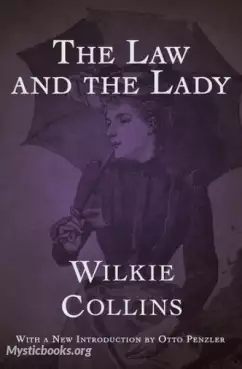
The Law and the Lady
The Law and the Lady is a detective story, published in 1875 by Wilkie Collins. It is not quite as sensational in style as The Moonstone and The Woman in White.

The Biter Bit
The story follows the fortunes of a young man named Valentine Blyth, an aspiring artist who falls victim to a cunning and manipulative con artist named Jabez North. North's scheme involves convincing Blyth to marry his daughter, only to then reveal t...

The Fallen Leaves
A tale of hidden secrets and tangled destinies unfolds, leaving readers enthralled and eager for answers. This captivating Victorian mystery novel takes us on a journey through love, betrayal, and the quest for redemption, set against the backdrop of...
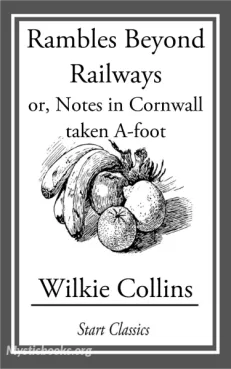
Rambles Beyond Railways; or, Notes in Cornwall taken A-foot
In this, Wilkie Collins invites readers to explore the rugged beauty and rich history of Cornwall through his captivating travelogue. Departing from the confines of conventional transportation, Collins embarks on foot-bound expeditions that unveil th...

The New Magdalen
When a young woman is presumed dead in a war, another woman seizes the opportunity to escape her past and assume her identity. But when the first woman is found alive, the two must confront their pasts and the lies they have told. This hook introduc...
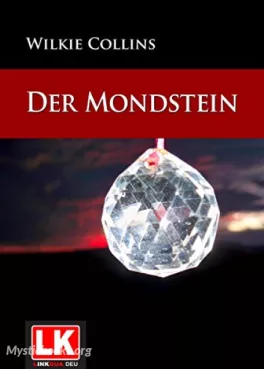
Der Mondstein
Mit einem funkelnden indischen Mondstein beginnt ein unvergessliches Abenteuer: "Der Mondstein", ein Klassiker des viktorianischen Sensationsromans von Wilkie Collins, entführt Sie in eine Welt voller Rätsel, Intrigen und unerwarteter Wendungen. Ein...
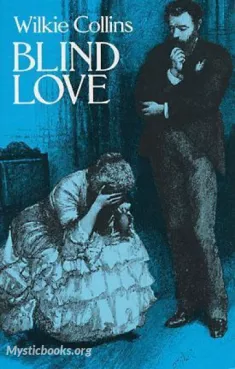
Blind Love
Embark on a captivating journey into the depths of human emotion and the perils of misplaced affection with Wilkie Collins's enthralling novel, "Blind Love." Prepare to be swept away by a tale of forbidden romance, political intrigue, and the devasta...

Fräulein Minna und der Reitknecht
Minnas neuer Reitknecht Michael kennt weder seine Mutter noch seinen Vater. Sie ist fasziniert von dem Mann, der versucht, das Beste aus seiner Situation zu machen und fühlt sich mehr zu ihm hingezogen, als es ihrem Stand entspricht. Sehr sonderbar i...
Showing 1 to 24 of 42 results